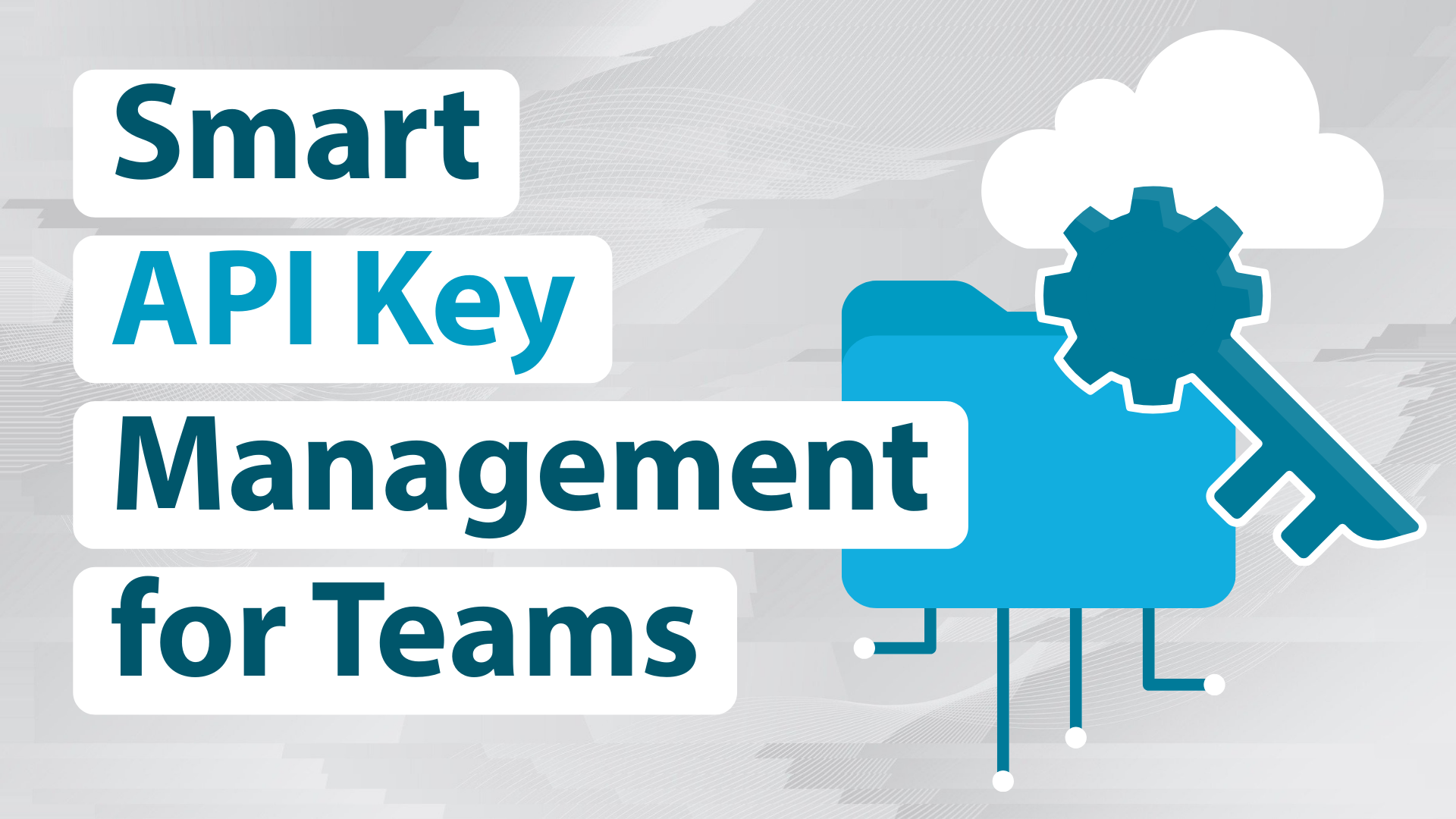
Smart API Key Management for Teams: Security Made Simple
Whether you’re a solo network administrator or part of a larger operations team, chances are you’ve discovered the power of ARIN’s Application Programming Interface (API). It’s a convenient way to automate resource management and interact with ARIN without logging in to ARIN Online. But with convenience comes responsibility. Organizations must avoid critical security mistakes that could put their network infrastructure at risk.
If you’ve ever been tempted to share your API key with teammates, this post is for you. We’ll walk through why that seemingly harmless action could expose your organization to serious security risks, and, more importantly, show you a better way to give your team the access they need without compromising security.
What is an API key?
An API key is required to manage your data in ARIN’s database without using ARIN Online. Think of it as a secure credential that you can use to identify yourself to ARIN when you interact with us outside of ARIN Online through tools like Reg-RWS, access reports and downloads, and manage RPKI, IRR, and reverse DNS through RESTful calls.
If you’re a single user managing your resources, you can generate a personal API key via your ARIN Online account and get started. But what happens if you’re on a team with multiple members who need access to an API key so they can back you up and make changes to your organization’s resources?
Why Good API Key Hygiene Matters
Your first instinct might be to simply share your API key with your team so they can easily access necessary functions. But if you’re the Admin or Tech Point of Contact for your organization, sharing your key means handing over full control.
An API key should be treated like a password. With it, anyone can make changes to any aspect of your account, even without an ARIN Online user account of their own — putting your organization at risk.
Additionally, when everyone on your team uses a shared API key, this breaks traceability, meaning ARIN can’t differentiate who made which changes. That makes troubleshooting, accountability, and auditing far more difficult.
How to Implement Secure API Key Management
By combining the features of Role Points of Contact with unique API keys, you can improve both security and record keeping. For example, when a user designated as a Routing Point of Contact creates an API Key, that key will be restricted to actions permitted for that role.
A Role Point of Contact’s responsibilities are based on how the Point of Contact is connected to an Organization Identifier (Org ID) or its resources. Multiple ARIN Online accounts can be associated with a single Role Point of Contact, allowing multiple points of management for an organization’s Org ID and Internet number resources.
Additionally, use of a Role Point of Contact allows an organization to use a shared email address (like a group email) instead of an individual’s email address in ARIN’s public database (searchable via Whois or RDAP).
You can learn more about all Point of Contact records, including Role Points of Contact, in our Introduction to ARIN’s Database and in the blog posts “How a Role Point of Contact Can Help You Better Manage Your ARIN Resources” and “Strengthening Security for Point of Contact Management.”
When an ARIN Online user associated with an organization’s Role Point of Contact creates unique API keys for each individual on a team, you’re accomplishing several strong security best practices:
- An API Key will only have the permissions of the ARIN Online user who created it.
- Specific actions can be traced back to specific API keys.
- If you need to replace a compromised API key, the number of affected users will be limited.
Take Action Today
Securing your API keys isn’t just about following best practices — it’s essential for protecting your organization’s most critical network resources. The good news is that implementing proper API key hygiene doesn’t have to be complicated or time-consuming.
Start by auditing your current API key usage. Are you sharing admin-level keys with team members? Is it difficult to track who made specific changes to your resources? If you answered yes to either question, it’s time to implement Role Points of Contact and individual API keys.
Convenience should never come at the expense of security. With just a few extra steps to properly configure your API access, you’re not just protecting your current resources but also building a foundation for secure, scalable network management as your organization grows.
Ready to get started? Head to our ARIN Account Management page to access information on Points of Contact, then make any necessary adjustments via your ARIN Online account. Your future self (and your security team) will thank you.
Need Help? If you have questions about API keys or Point of Contact management or need assistance with any registration processes, please contact ARIN’s Registration Services Department by creating an Ask ARIN ticket from within your ARIN Online account or by calling our Help Desk at +1.703.227.0660, Monday through Friday, 7:00 AM to 7:00 PM ET.
Recent blogs categorized under: Security
GET THE LATEST!
Sign up to receive the latest news about ARIN and the most pressing issues facing the Internet community.
SIGN ME UP →Blog Categories
Guest Post • Public Policy • IPv6 • IPv4 • Updates • Fellowship Program • Security • Grant Program • Caribbean • Outreach • ARIN Bits • RPKI • Internet Governance • Tips • IRR • Elections • Training • Data Accuracy • Business Case for IPv6 • Customer Feedback


